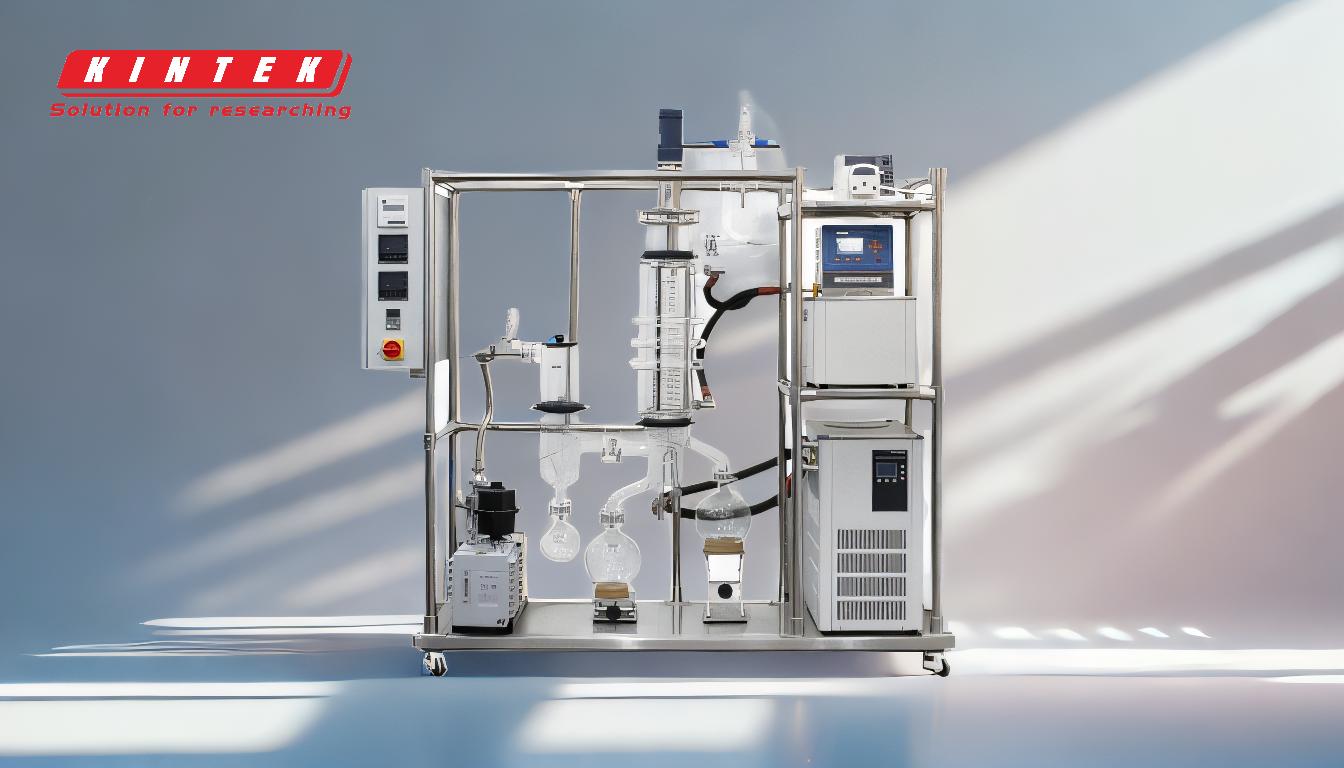Distillation is a widely used process in industries such as chemical manufacturing, petrochemicals, and food production. While it is essential for separating and purifying substances, it has significant environmental impacts. These include high energy consumption, greenhouse gas emissions, water usage, and the generation of waste products. Understanding these effects is crucial for developing sustainable practices and minimizing the ecological footprint of distillation processes.
Key Points Explained:

-
Energy Consumption and Greenhouse Gas Emissions
- Distillation is an energy-intensive process, often requiring large amounts of heat to vaporize and condense substances.
- The energy is typically derived from fossil fuels, contributing to CO₂ and other greenhouse gas emissions.
- High energy demand also increases operational costs, making it less sustainable in the long term.
- Mitigation strategies include using renewable energy sources, improving energy efficiency, and integrating heat recovery systems.
-
Water Usage and Contamination
- Distillation processes often require significant amounts of water for cooling and condensation.
- This can strain local water resources, especially in arid regions or areas with limited freshwater availability.
- Wastewater from distillation may contain contaminants, such as chemicals or heavy metals, which can harm aquatic ecosystems if not properly treated.
- Solutions include recycling water, using closed-loop cooling systems, and implementing advanced wastewater treatment technologies.
-
Waste Generation
- Distillation produces waste byproducts, including residual chemicals, sludge, and non-condensable gases.
- Improper disposal of these wastes can lead to soil and water pollution.
- Some byproducts may be hazardous, requiring specialized handling and disposal methods to prevent environmental harm.
- Recycling and reusing waste materials, as well as developing greener alternatives, can help reduce waste generation.
-
Air Pollution
- Volatile organic compounds (VOCs) and other pollutants may be released during distillation, contributing to air quality degradation.
- These emissions can have adverse effects on human health and the environment, including the formation of ground-level ozone and smog.
- Implementing emission control technologies, such as scrubbers and condensers, can help minimize air pollution.
-
Impact on Climate Change
- The cumulative effect of energy use, greenhouse gas emissions, and waste generation from distillation contributes to climate change.
- Climate change exacerbates environmental issues such as extreme weather events, rising sea levels, and biodiversity loss.
- Transitioning to low-carbon distillation technologies and adopting circular economy principles can help mitigate these impacts.
-
Sustainable Alternatives and Innovations
- Advances in membrane separation, adsorption, and other non-thermal separation technologies offer more energy-efficient alternatives to traditional distillation.
- Integrating renewable energy sources, such as solar or geothermal energy, can reduce the carbon footprint of distillation processes.
- Life cycle assessments (LCAs) and green chemistry principles can guide the development of environmentally friendly distillation methods.
By addressing these key points, industries can reduce the environmental impact of distillation and move toward more sustainable practices. This not only benefits the environment but also aligns with global efforts to combat climate change and promote resource efficiency.
Summary Table:
| Environmental Impact | Key Issues | Mitigation Strategies |
|---|---|---|
| Energy Consumption & Emissions | High energy use, fossil fuel reliance, CO₂ emissions | Renewable energy, energy efficiency, heat recovery systems |
| Water Usage & Contamination | High water demand, strain on resources, wastewater contamination | Water recycling, closed-loop cooling systems, advanced wastewater treatment |
| Waste Generation | Residual chemicals, sludge, hazardous byproducts | Recycling, reusing waste, developing greener alternatives |
| Air Pollution | VOC emissions, air quality degradation | Emission control technologies (e.g., scrubbers, condensers) |
| Climate Change Impact | Cumulative effects of energy use, emissions, and waste | Low-carbon technologies, circular economy principles |
| Sustainable Alternatives | Membrane separation, adsorption, renewable energy integration | Life cycle assessments, green chemistry principles |
Ready to reduce your environmental impact? Contact us today to explore sustainable distillation solutions!












